HIKING is getting increasingly popular among enthusiasts seeking both a healthy exercise and an enjoyable outdoor experience in Penang.
However, a myriad of trails on a single hill can be perplexing, even for seasoned hikers. Adding to that challenge, numerous trails are marred by litter. They are an eyesore ruining the state’s natural beauty.
In response to these issues, Hikers Roundtable, an alliance comprising hikers, hash runners, trail runners, mountain bikers (MTB) and members of the outdoor community, has embarked on a mission for positive change.
Established just before the onset of the Covid-19 pandemic in 2019, Hikers Roundtable convened a meeting last September that brought together about 30 hikers’ captains. They shared their experiences and came out with a slogan – Responsible Hiking.
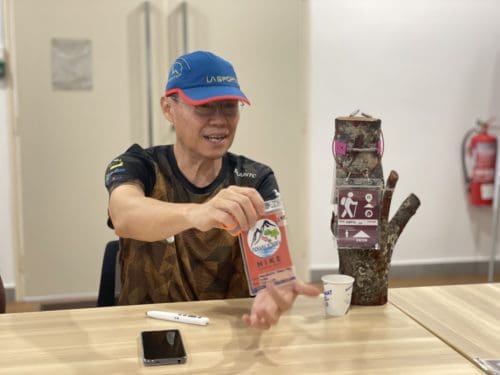
Hikers Roundtable founder Tony Leng said they are basically a volunteer group with two main goals: one is to reduce or eliminate trash on the trails, and the other is to establish a standardised and sustainable trail system in Penang so that more people can enjoy Penang’s hiking trails with enhanced safety.
“Currently, hiking trails in Penang are like a bowl of spaghetti, very messy and chaotic. So, we want to create a standardised system of trails marked by MAS-Tags along the routes,” Leng said.
He elaborated on two types of MAS-Tags: MAS-Tag Reuse and MAS-Tag Denai. MAS stands for multi-agency standardised.
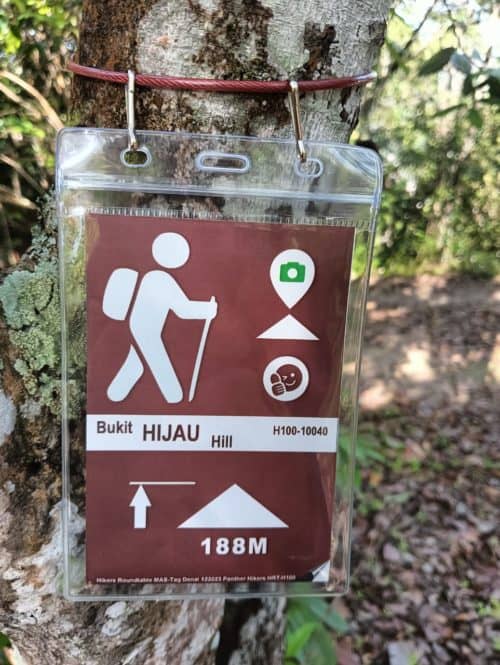
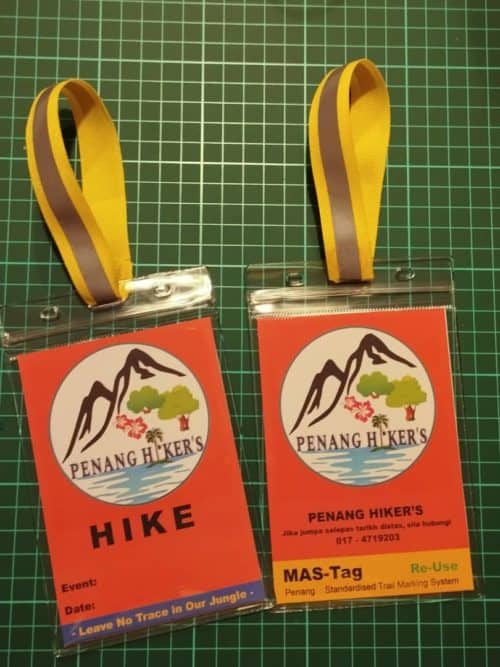
“MAS-Tag Reuse is designed for a short-term event promoting “Leave No Trace In Our Jungles.” These tags can be collected back after the event and re-used for future events simply by replacing old labels with new ones.
“On the other hand, MAS-Tag Denai is used to mark permanent trails, displaying useful information such as trail distance, difficulty level, rain shelter locations, and a trail care line (+6011 55577167). A QR code at the back of the tag allows hikers to scan and WhatsApp for assistance,” Leng told Buletin Mutiara during an interview recently.
Acknowledging that this endeavour is going to be a long process, Leng said Hikers Roundtable would need the collaboration of a lot of people and agencies, such as the Penang Forestry Department and Penang Hill Corporation. He added that CIMB Islamic Bank and The Habitat Foundation are key partners in their statewide sustainability programme.
“This is a community project. No single agency can handle it alone. We have to survey the trails and do digital mapping. After marking the trails with MAS-Tags, we have to maintain them. We hope many people and agencies will join us to make Penang the hub of outdoor recreation in Malaysia,” Leng added.
Thus far, Hikers Roundtable has surveyed 76 peaks of varying sizes, covering approximately 170km through various jungles. They will subsequently study how to make the best trail for each hill.
Present during the interview were Datuk Cheok Lay Leng, general manager of Penang Hill Corporation (PHC); Sharil Cheah, senior manager of PHC; Lim Woan May, assistant manager Corporate Management Unit of PHC; Senggaran SB, a member of the PSC Hash; Andy Lim from Panther Hikers, Fisol Khalib from Ultimate Trails of Penang (UToP); Rizaudin Wahab and Joe Chin, both from Penang Adventurers Club; and ‘Jungle’ Sim from Penang Hiker’s.
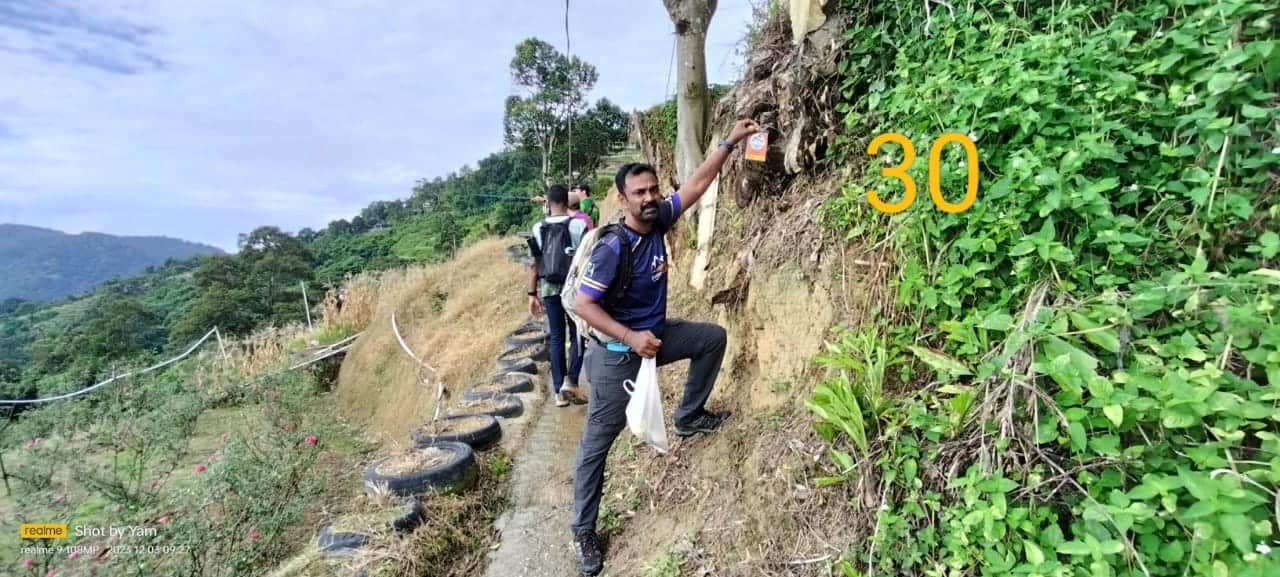
Senggaran said for years, hash papers scattered along trails have long been a major contributor to jungle litter. Despite being a hasher for several years, he is now a strong advocate for the adoption of MAS-Tags to reduce or even eliminate trail-rubbish.
Although Penang is a small state, it boasts probably the greatest density of hash clubs in Malaysia with 25 registered clubs and many more unregistered ones, according to Senggaran.
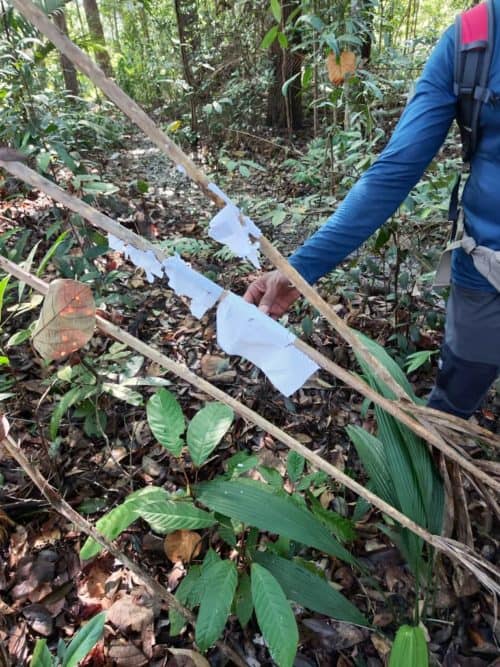
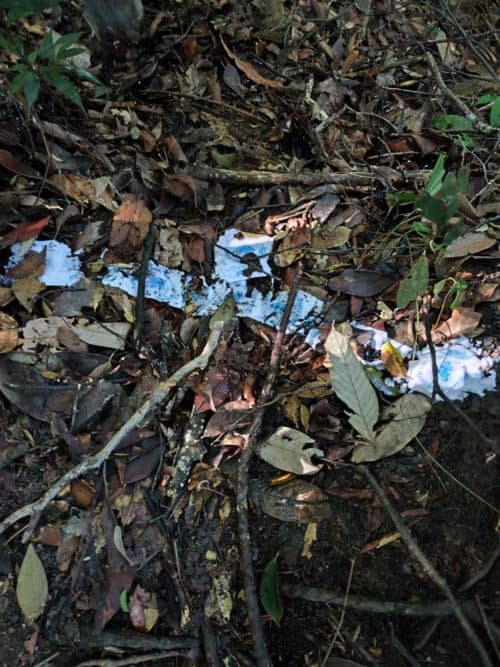
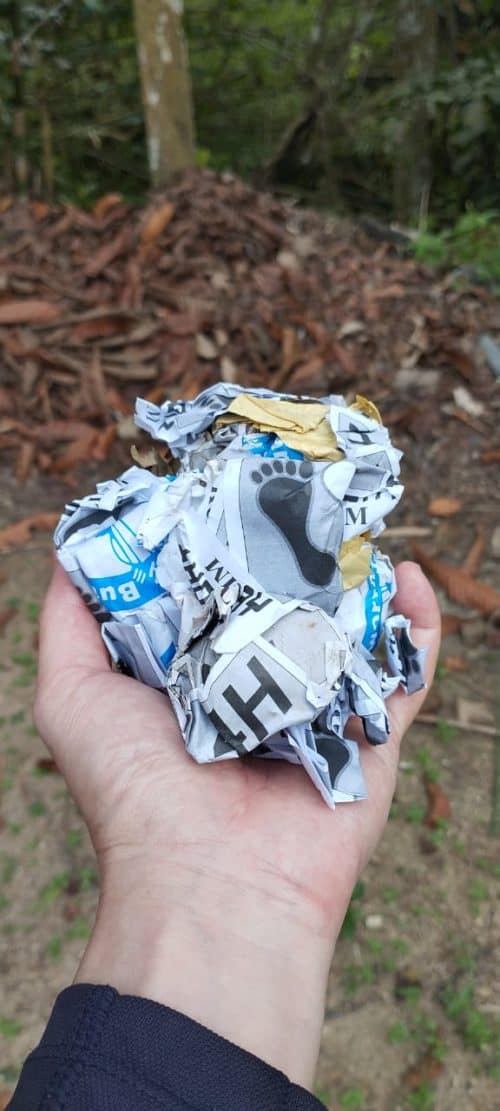
“When these hashers go for their runs, their leaders will throw pieces of paper on the ground to mark the trail for those following behind. This paper chasing culture dates to 1938. Often, these papers are stapled on leaves.
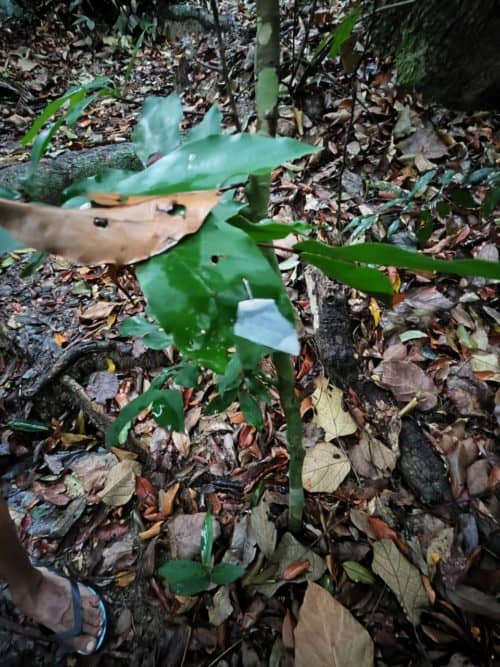
“Unfortunately, these papers are left behind after the event, thus becoming trail-rubbish. That is why we (Hikers Roundtable) want to encourage hashers and hikers to adopt the environmentally-friendly MAS-Tag instead,” Senggaran said.
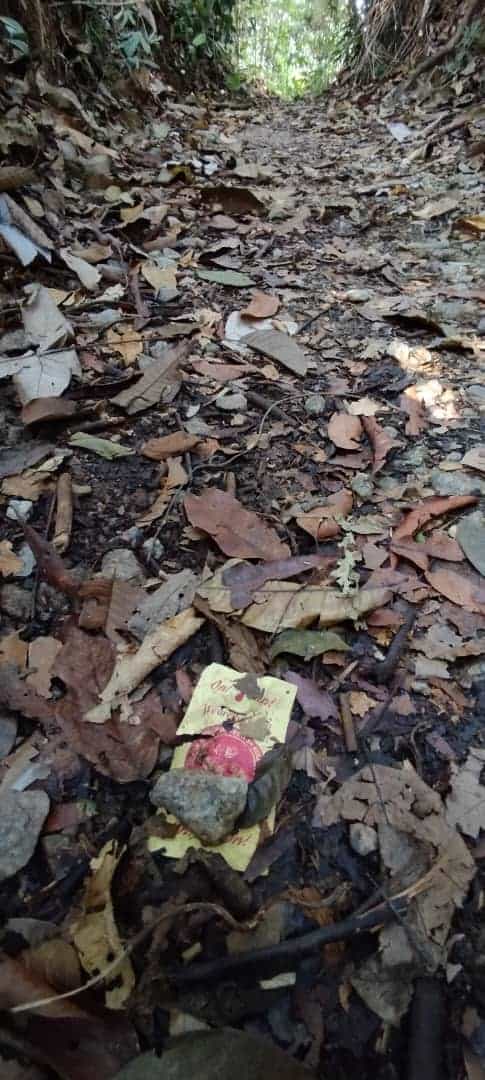
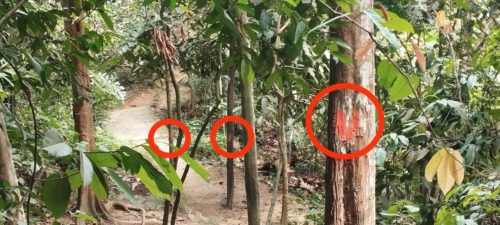
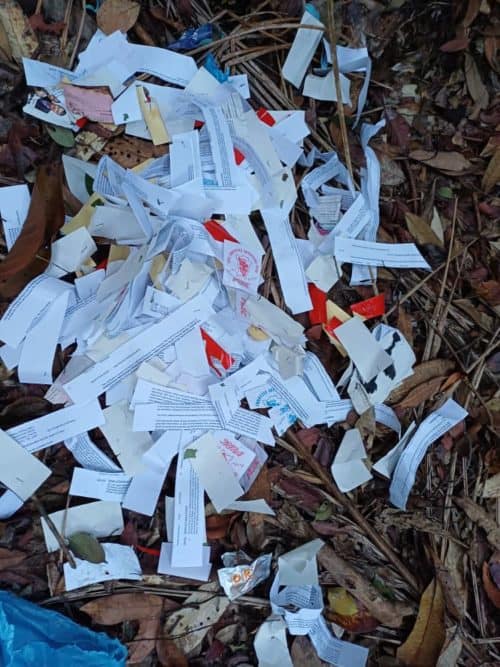
He said the amount of papers thrown on trails by hashers daily is substantial, given that each group may throw 300 to 500 pieces of 4”x4” paper per event. That is equivalent to 17 pieces of A4 paper per group per run.
Senggaran also believes that although papers may be biodegradable, they are not environmentally friendly as they contain harmful chemicals, including bleaching and brightening agents. Equally important, trail-rubbish is a very unpleasant sight for other trail users.
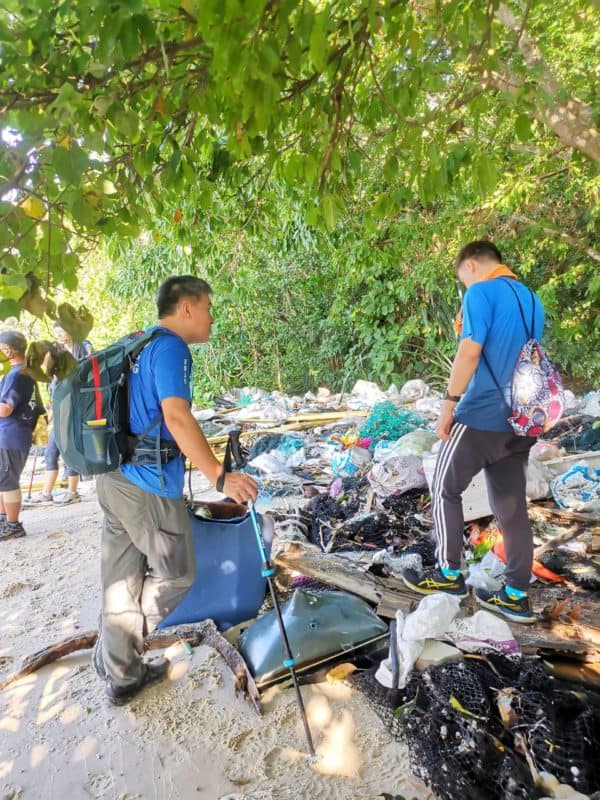
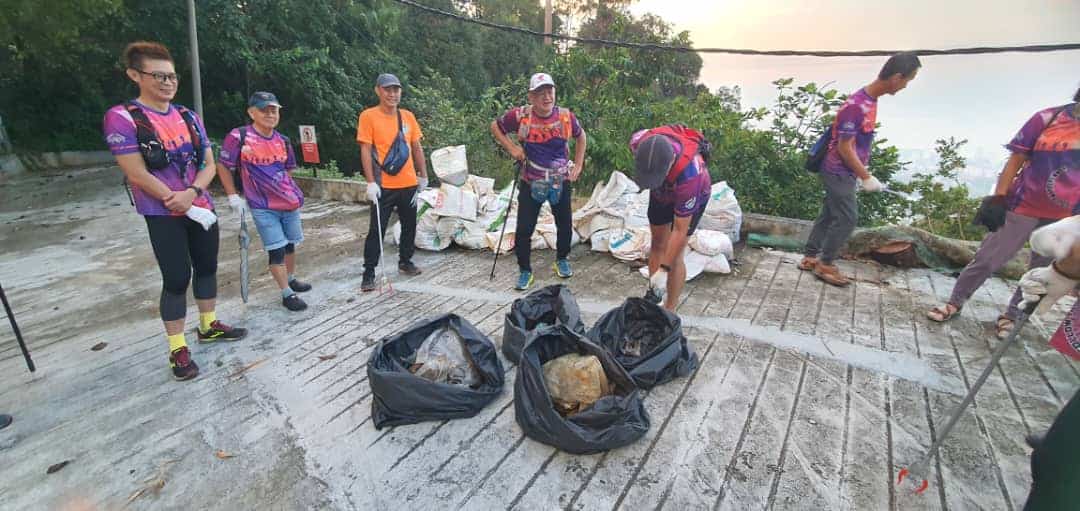
This led Leng to share about what makes a “complete hiker”.
He said one needs to possess three vital traits to become a complete hiker: good at hiking, active in sustainability, and involved in conservation.
He said a complete hiker would not cause destruction to the natural environment and would repair what has been damaged, like planting trees.
“Whether you are a mountain biker, a trail runner or a hiker, you need to understand how nature works. And we need to work with nature, not only for our short-term enjoyment during recreation but to think a little more deeply about the sustainability and conservation of our ecosystem.”
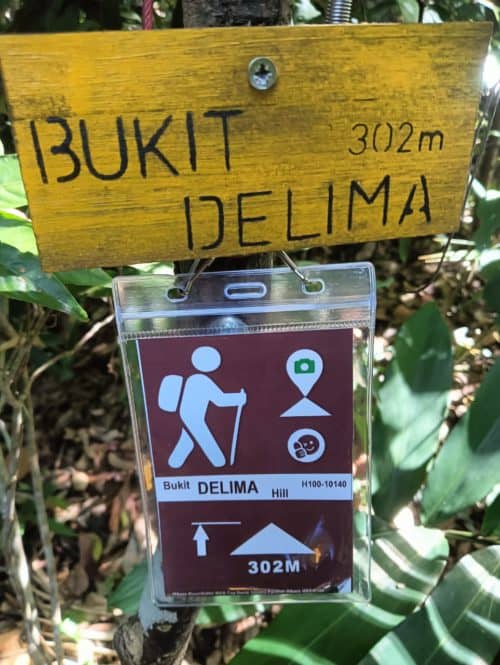
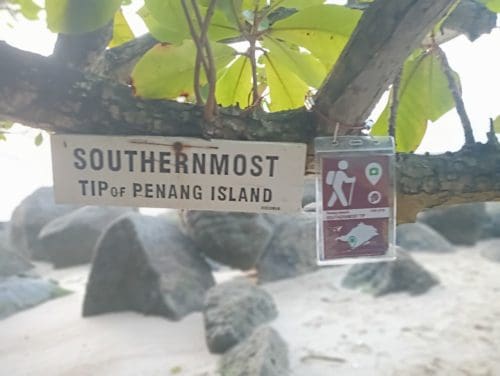
Leng expressed his appreciation to the Penang Botanic Gardens and the Penang Forestry Department for generously opening their nurseries and supplying saplings. This has enabled them to engage in tree-planting activities during gotong-royong to rehabilitate certain areas.
He believes that the establishment of systematic trails can attract many outstation hikers and even international adventurers to Penang, thus generating good revenue in the form of adventure tourism.
For instance, he said he was contacted by a travel agent when a group of over 20 French tourists wanted to hike in Penang after their trip to Sabah. Leng said that providing guides for them to experience Penang’s 130 million-year-old rainforest is not an issue, however, the current condition of hiking trails does not give a good impression.
Hikers Roundtable goes beyond just hiking. According to Leng, they act as eyes and ears for government agencies, including the police and forestry departments.
In one instance, he said Hikers Roundtable assisted the police by helping them nab a burglar who used the jungles as his hideout, to commit a spate of burglaries on posh residences at the foothills of Penang.
Hikers Roundtable also works closely with St John’s Ambulance, being allowed access to a direct line. Just recently they helped pinpoint the location (near Richmond bungalow on Penang Hill) for St John’s Ambulance during a jungle emergency.
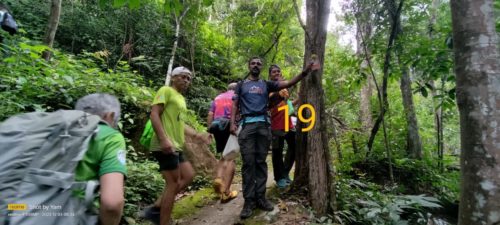
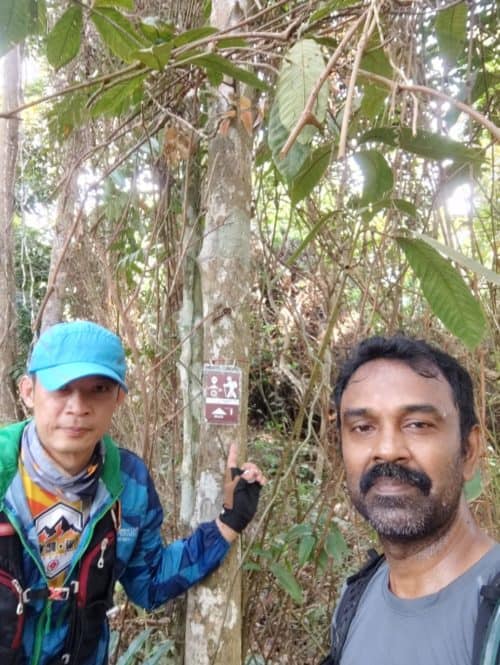
Looking forward, Leng said Hikers Roundtable plans to organise a ‘Sea to Summit’ national hiking jamboree at the end of the year for stakeholders, residents and farmers. They also want to share experiences on using MAS-Tag with outstation hikers and even work with them to promote sustainable trail systems in their respective states.
Last November, Hikers Roundtable conducted a three-day workshop for nearly 100 attendees at the Penang Institute on the proper way to build trails from an expert.
Leng thanks agencies like Penang Hill Corporation for supporting them in the ‘Sea to Summit’ initiative and counts private corporations like CIMB Islamic Bank, Escape Theme Park in Teluk Bahang and The Habitat Penang as their partners. Escape Theme Park has given Hikers Roundtable 200 complimentary tickets for camping at its premises.
However, Leng was sad to report that when they carried out a pilot project to mark a trail from Botanic Gardens to Penang Hill Station 46, 90% of MAS-Tags installations on the 1km route were eventually stolen. The only one left was by the road with plenty of passersby.
“We need to make people aware of what we are doing and urge the culprits to stop pilfering,” he said.
On a positive note, Leng said Penang Sports Club Hash was the first hash club in Malaysia to adopt MAS-Tags in their activities.
Additionally, the first large-scale use of MAS-Tag in Malaysia took place during the Penang Madani Hike with over 400 participants on Jan 1, 2024.
‘Jungle’ Sim and his team plan to incorporate the MAS-Tags in a big hiking event in June for thousands of hikers. The organisers of the Battle of Bukit Cendana Challenge also intend to use MAS-Tags for their event in July.

Cheok Lay Leng, the Penang Hill Corporation general manager, commended the Hikers Roundtable as unsung heroes for their efforts in raising public awareness to keep our jungle trails clean and safe through the use of MAS-Tag, and involving relevant stakeholders to bring about positive change.
“I believe we can make a difference if we all work together. It’s a collective effort.
“We must not litter in the jungle. Even if only one percent does, it’s damaging enough. We need to protect the environment so that future generations can enjoy it,” Cheok said.
All said, Hikers Roundtable is steadfast in its pursuit of introducing a standardised trail marking system to eliminate litter on hiking trails. Given the community-driven nature of this endeavour, collaboration from all trail users and stakeholders is crucial. Hikers Roundtable is inclusive and welcomes all outdoor recreation groups.
Story by K.H. Ong
Pix by Adleena Mohd Radzi

